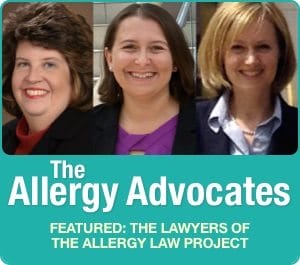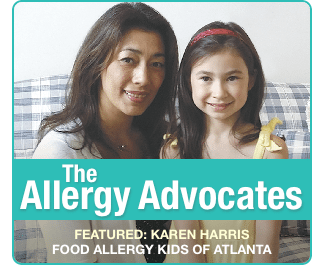
First, the LEAP (Learning Early About Peanut Allergy) study applies only to allergy prevention in infancy. It doesn’t change life at all for those who already have a peanut allergy; the need for allergen avoidance remains the same for them.
Allergic Living put some key questions to Dr. Scott Sicherer, chief of allergy and clinical immunology at the Icahn School of Medicine at Mount Sinai, to help readers understand the implications of LEAP.
Is the study likely to change the advice that allergists or pediatricians give to pregnant moms?
In one sense, “no”. Since a reversal of suggestions from the American Academy of Pediatrics and other groups seven years ago, there has been no advice to delay introduction of peanuts (or other allergenic foods) for “healthy” infants. Medical organizations are now working to incorporate the study results into general feeding guidelines for healthy infants.
For infants prone to allergy, the results at least suggest that inordinate delays in introducing peanut, and perhaps other allergens, may be counter-productive. The study’s results are in line with the prior conclusions.
However, the study results strongly impact the approach for infants who are showing signs of an allergy. It is known that an infant with severe eczema or egg allergy (and other food allergies), like those in the study, are at increased risk for having or developing additional food allergies, including peanut. This risk has typically resulted in delaying the introduction of peanut.
The LEAP study results strongly suggest that early evaluation for peanut allergy and early introduction, if possible, may reduce the risk. Expert panels are also formulating approaches for infants at “high risk”.
If a parent of a young baby has a food allergy and has had allergic reactions, what should that family now do in regard to feeding – or not feeding – peanut to the child?
First, seek out your allergist’s advice. I suspect that allergists will follow the process of the LEAP study, with allergy testing and medically supervised feedings, as deemed necessary.
This will require understanding on the part of families that some infants react at that first feeding or may at some point develop symptoms. The families in the LEAP study had to make a commitment to incorporating a specified amount of infant-safe forms of peanut into the diet, and we do not know the implications of variations on that “dosing”.
We also do not yet know if children are indefinitely dependent on the feeding regimen, or if they will remain peanut-allergy “free” when not purposely and frequently eating peanut.
My child has a peanut allergy and I didn’t give him peanut until age 3. Does this mean it’s my fault that he’s allergic?
We do not fully understand the reasons we have seen an increase in food allergies. Food allergy is a result of complex interactions of genetics and environment. You have likely read about the hygiene hypothesis, vitamin D theory, unhealthy fats, and other theories to explain the increase in food allergy and other allergic diseases. It is likely that many factors have conspired to promote allergy.
I would not blame yourself(!) but if you have to place blame it might be placed on your ancestors and on circumstances of modern living.
The researchers were introducing peanut to babies at only four months old. Isn’t that pretty young for such a food?
Professional groups and expert panels are formulating guidance, which is difficult given that the study evaluated only one specific scenario in “high risk” infants, and they were ages four months up to 11 months.
Peanuts and peanut butter are choking hazards for infants, and peanut is not considered among “first foods” for infants. The study addressed this by using specific forms of peanut that were very smooth and safe for infants, given under careful guidance. I am not aware of infants being fed peanut as a first or very early food, even decades before a rise in allergy was noted.
For context, in an earlier, related study of Israeli Jewish children who had a much lower rate of peanut allergy than was observed among Jewish children in the U.K., peanut was incorporated into the diet around seven months of age. (The U.K. infants generally had no peanut over the first year of life.)
Babies who had more highly positive skin results weren’t part of this study. What about young children who appear to already be allergic to peanut?
I think that allergists will discuss this scenario individually. It is likely that more of these infants will react upon first ingestion of peanut, which has to be balanced with the uncertain but possibly beneficial impact of attempting to incorporate peanut in the diet if they tolerate a first feeding.
New peanut allergy studies aren’t uncommon. Why is this study important?
This really is a “landmark” study that will immediately impact practice and will very likely reduce peanut allergy.
See also:






